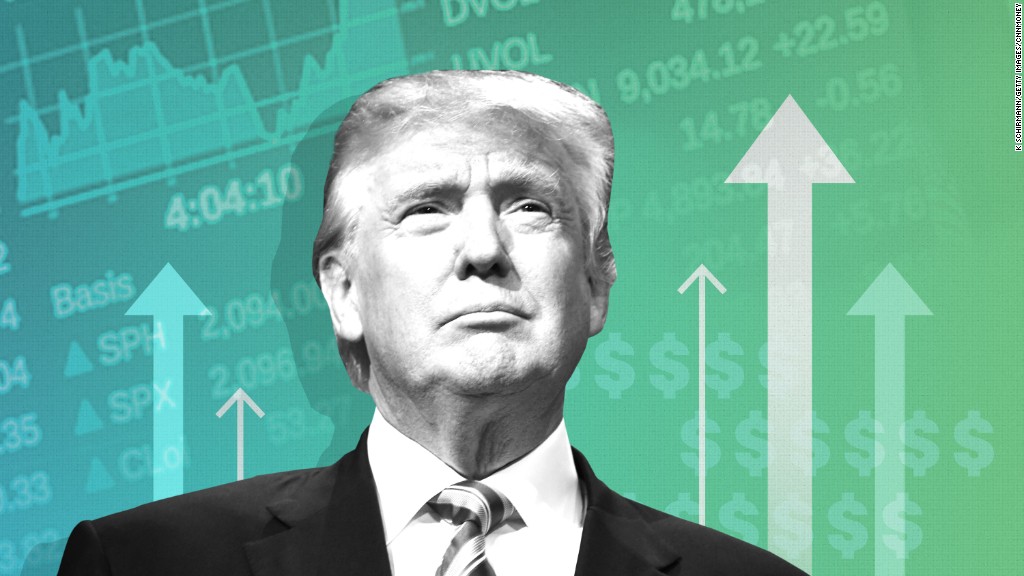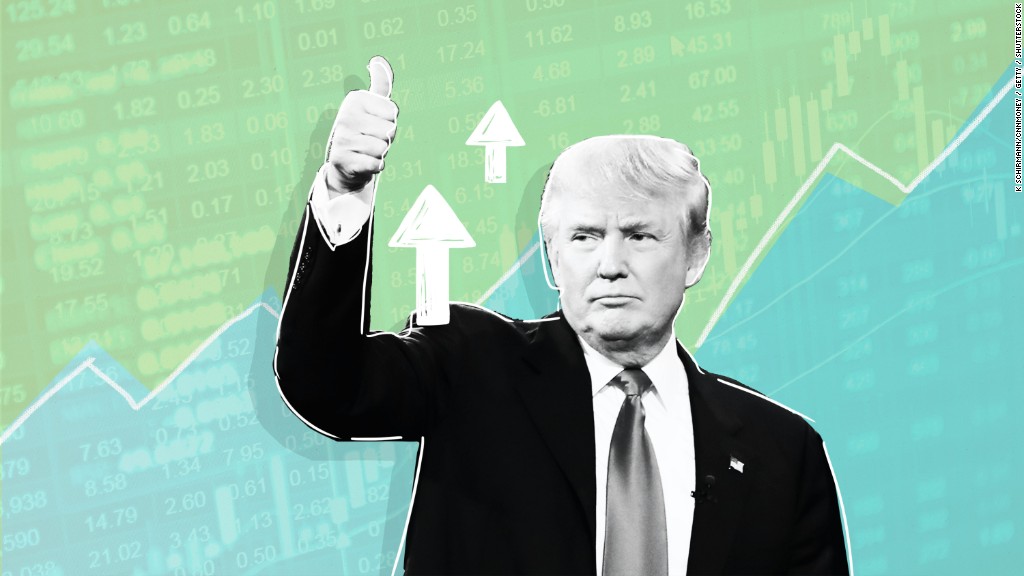**Let’s be real here, folks. When you hear the name Jesse Doocy and Donald Trump in the same sentence, you know sparks are gonna fly. And that’s exactly what happened when Doocy confronted Trump on the market drop. This wasn’t just any interview—it was a moment that sent ripples through the world of politics, economics, and media. If you’re curious about what went down and why it matters, you’re in the right place.**
Picture this: the stock market takes a nosedive, and suddenly everyone’s pointing fingers. Enter Jesse Doocy, the Fox News anchor who’s not afraid to ask the tough questions. When Trump sat down for an interview, Doocy didn’t shy away from the elephant in the room—the market drop. It was bold, it was fiery, and it was exactly what people wanted to see.
Now, you might be wondering why this confrontation matters. Well, buckle up, because we’re diving deep into the world of politics, economics, and media dynamics. This isn’t just about two personalities clashing—it’s about understanding the bigger picture and how it affects all of us.
Read also:Unveiling The Power Of Www 6apps Net Your Ultimate Mobile App Hub
Who is Jesse Doocy?
Before we get into the juicy details, let’s take a moment to talk about Jesse Doocy. This guy isn’t just another pretty face on TV. He’s a seasoned journalist with a knack for getting to the heart of the matter. Known for his sharp questions and no-nonsense attitude, Doocy has become a household name in the world of political journalism.
Biography of Jesse Doocy
Here’s a quick rundown of Doocy’s life and career:
| Name | Jesse Doocy |
|---|---|
| Birthdate | June 15, 1982 |
| Birthplace | Washington, D.C. |
| Education | Georgetown University |
| Career | Journalist, Fox News Anchor |
| Notable Works | Interviews with world leaders, in-depth political analysis |
Doocy’s career took off when he joined Fox News, where he quickly became known for his ability to tackle tough topics with grace and precision. His interview with Trump on the market drop was just another example of his fearless approach to journalism.
Understanding the Market Drop
Now, let’s talk about the elephant in the room—the market drop. What caused it? How did it affect the economy? And most importantly, why did Doocy bring it up in his interview with Trump?
The stock market is like a rollercoaster—sometimes it’s up, sometimes it’s down. But when it takes a sudden plunge, people start asking questions. In this case, the market drop was linked to a combination of factors, including inflation, geopolitical tensions, and policy decisions. And guess what? Trump’s administration was right in the middle of it all.
Factors Contributing to the Market Drop
- Inflation rates skyrocketing
- Trade wars with key allies
- Uncertainty around government policies
- Global economic slowdown
Doocy knew this was a sensitive topic, but he also knew it was important to address. After all, the market drop had real-world consequences for millions of Americans. By bringing it up, he was shining a light on an issue that needed to be discussed.
Read also:Unlocking The Secrets Of Xhmstr A Deep Dive Into The World Of Digital Innovation
Doocy’s Approach to the Interview
When it comes to interviewing high-profile figures, Doocy has a unique approach. He doesn’t shy away from tough questions, but he also knows how to keep things respectful. In his interview with Trump, he struck the perfect balance between professionalism and tenacity.
Doocy started by laying out the facts: the market had dropped significantly, and many were blaming the administration’s policies. He then asked Trump point-blank: “What do you have to say to those who believe your policies are responsible for the market drop?”
Trump’s Response
Trump, being Trump, didn’t mince words. He fired back with his usual confidence, blaming external factors and denying any responsibility. But Doocy wasn’t about to let him off the hook. He pressed further, asking about specific policy decisions and their impact on the economy.
It was a back-and-forth that kept viewers on the edge of their seats. Trump’s responses were passionate, but Doocy’s questions were relentless. The result? A conversation that was both fiery and informative.
The Impact of the Interview
So, what happened after the interview aired? Well, the reaction was mixed, as you might expect. Some praised Doocy for his bravery and tenacity, while others criticized him for being too aggressive. But one thing was clear: the interview sparked a national conversation about the market drop and its causes.
Social media lit up with comments and opinions. People were talking about the interview everywhere—from watercooler conversations to late-night talk shows. And that’s exactly what Doocy wanted—to get people thinking and talking about important issues.
Public Reaction
- Supporters of Doocy praised his courage
- Trump’s fans defended his responses
- Economists weighed in on the validity of the claims
- Politicians on both sides of the aisle chimed in
The interview became a lightning rod for debate, which is a testament to its impact. It wasn’t just about the market drop—it was about accountability and transparency in government.
Understanding the Broader Context
While the interview focused on the market drop, it also touched on broader issues affecting the economy. From inflation to unemployment rates, Doocy covered it all. This approach gave viewers a comprehensive understanding of the challenges facing the country.
Doocy’s ability to connect the dots between seemingly unrelated issues is what sets him apart. He didn’t just ask about the market drop—he asked about the policies that led to it, the people affected by it, and the solutions being proposed. It was journalism at its finest.
Economic Indicators to Watch
- Inflation rates
- Unemployment numbers
- Stock market performance
- Government spending
By highlighting these indicators, Doocy provided viewers with the tools they needed to understand the bigger picture. It wasn’t just about one interview—it was about empowering people to make informed decisions.
Doocy’s Role in Modern Journalism
In today’s world, where misinformation runs rampant, journalists like Doocy play a crucial role. They’re the ones who ask the tough questions, hold powerful people accountable, and provide the public with the information they need to make sense of the world.
Doocy’s interview with Trump was a prime example of this. He didn’t shy away from controversy, and he didn’t let fear dictate his questions. Instead, he focused on the facts and the issues that matter most to the American people.
The Future of Political Journalism
As we move forward, the role of journalists like Doocy will only become more important. With the rise of social media and the spread of fake news, the need for credible, trustworthy sources of information has never been greater. And Doocy is leading the charge.
His commitment to truth and transparency is inspiring, and it’s something that all journalists should strive for. In a world where everyone has an opinion, it’s refreshing to see someone who’s willing to do the hard work of digging for the truth.
Conclusion: Why This Matters
Let’s wrap things up, shall we? Doocy’s confrontation with Trump on the market drop was more than just an interview—it was a moment that highlighted the importance of accountability in government. It showed us that journalists have a responsibility to ask tough questions and seek the truth, no matter how uncomfortable it may be.
So, what can you do? First, stay informed. Keep up with the news, and don’t be afraid to question what you see and hear. Second, support journalists who are doing the hard work of holding powerful people accountable. And finally, share this article with your friends and family. The more people who understand the issues, the better off we’ll all be.
Final Thoughts
Doocy’s interview with Trump was a masterclass in journalism. It was bold, it was informative, and it was exactly what the world needed at that moment. As we continue to navigate the complexities of modern politics and economics, let’s remember the importance of truth, transparency, and accountability. Because at the end of the day, that’s what matters most.
Table of Contents


